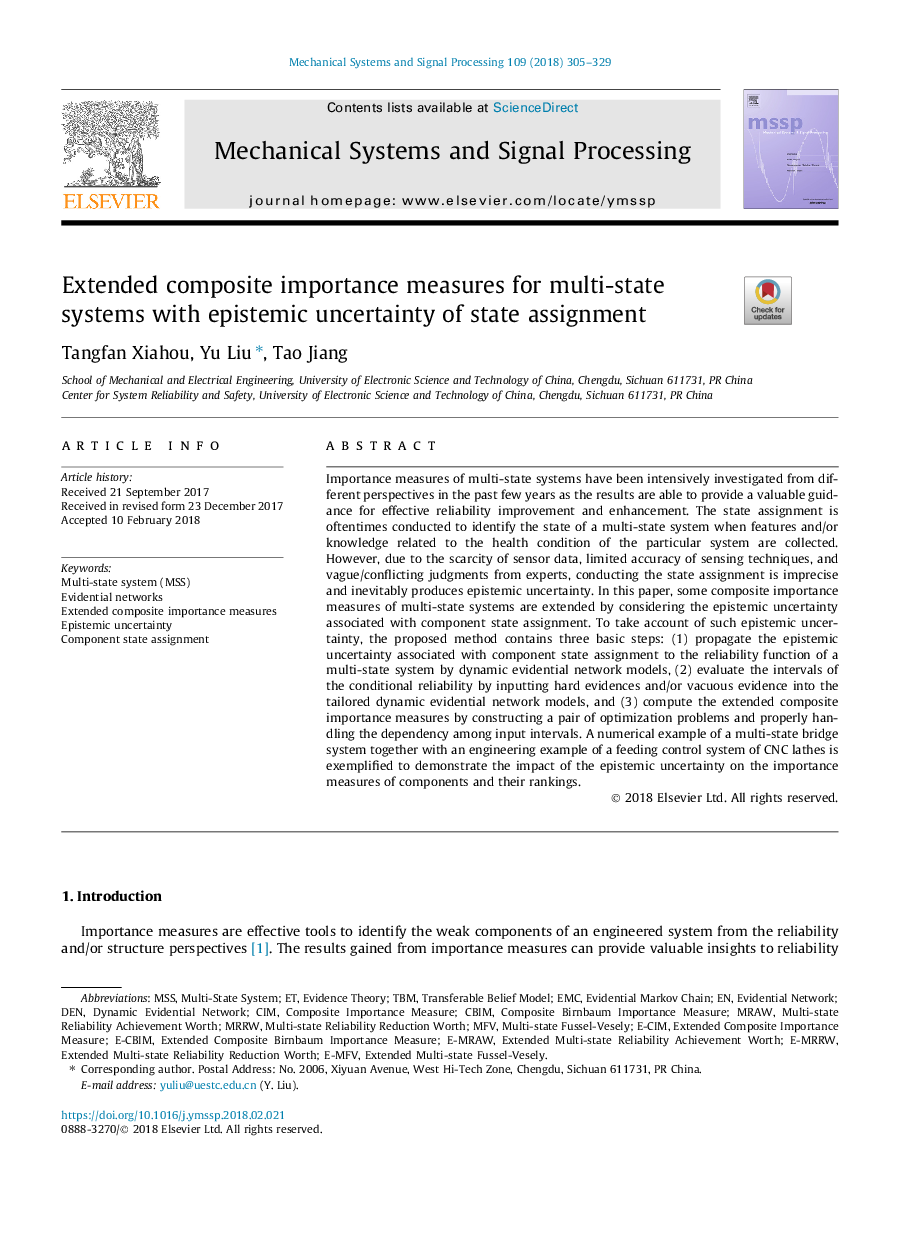| Article ID | Journal | Published Year | Pages | File Type |
|---|---|---|---|---|
| 6954120 | Mechanical Systems and Signal Processing | 2018 | 25 Pages |
Abstract
Importance measures of multi-state systems have been intensively investigated from different perspectives in the past few years as the results are able to provide a valuable guidance for effective reliability improvement and enhancement. The state assignment is oftentimes conducted to identify the state of a multi-state system when features and/or knowledge related to the health condition of the particular system are collected. However, due to the scarcity of sensor data, limited accuracy of sensing techniques, and vague/conflicting judgments from experts, conducting the state assignment is imprecise and inevitably produces epistemic uncertainty. In this paper, some composite importance measures of multi-state systems are extended by considering the epistemic uncertainty associated with component state assignment. To take account of such epistemic uncertainty, the proposed method contains three basic steps: (1) propagate the epistemic uncertainty associated with component state assignment to the reliability function of a multi-state system by dynamic evidential network models, (2) evaluate the intervals of the conditional reliability by inputting hard evidences and/or vacuous evidence into the tailored dynamic evidential network models, and (3) compute the extended composite importance measures by constructing a pair of optimization problems and properly handling the dependency among input intervals. A numerical example of a multi-state bridge system together with an engineering example of a feeding control system of CNC lathes is exemplified to demonstrate the impact of the epistemic uncertainty on the importance measures of components and their rankings.
Keywords
Related Topics
Physical Sciences and Engineering
Computer Science
Signal Processing
Authors
Tangfan Xiahou, Yu Liu, Tao Jiang,
